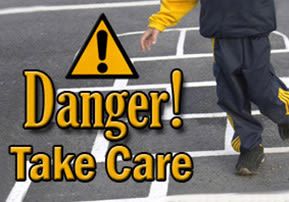
Danger! Take Care
It is our duty to educate and prepare them well for the stage when we are not at hand to take care of them, so they will God willing be able to guard..

Wherever there is a potentially life-endangering pitfall or obstacle, it is a positive commandment to remove it, to be on guard against it and to take very good care in the matter, as the Torah says: “Guard yourself and guard your soul…” (Deuteronomy 4:9-10). And if one leaves dangerous pitfalls and obstacles and fails to remove them, he has not fulfilled the positive commandment, while also transgressing the negative commandment of “Do not put blood upon your house” (Devarim 22:8). The Sages prohibited many things that can endanger life…. Anyone who violates these and similar prohibitions, saying “What business is it of others if I choose to put myself in danger” or “I am not bothered about such things” is liable to get lashes for rebellion against the Sages, while those who are careful will be blessed with good. (Shulhan Aruch, Hoshen Mishpat 427: 8-10).
The Torah obliges us to protect ourselves from dangers and to keep them well away. Today more than ever we have many occasions to keep these two mitzvahs of “Guard yourself” (the positive mitzvah) and “Do not put blood…” (the negative). There have always been dangers, and it was always necessary to take care. But the wonders of modern science and technology have brought many new dangers inside our homes, on the street and everywhere else.
It is not enough to be aware of dangers. It is our duty to do everything possible to protect ourselves from them. The rule that “a danger is more serious than a ritual prohibition” (Hulin 10a) applies to the two mitzvahs of “Guard yourself” and “Do not put blood”. In other words, negligence in the face of danger is more serious than violating Torah prohibitions such as against forbidden foods. Certainly, “We may not rely on miracles” (Pesahim 64b).
Teaching safety to children
As soon as children are born, the responsibility for their safety falls upon the parents. A baby obviously cannot take care of himself, and we the parents have to keep our eyes open all hours of the day. We watch our babies in the crib, the stroller and even when they’re in our arms.
The need to supervise a child grows the more active he becomes, especially the moment he starts crawling and walking. Now he can get all over the place. Our houses are likely to have plenty of electrical sockets and appliances, fragile items, sharp knives and tools, strong cleaning materials and other sources of danger. It is not enough to keep the child away from danger. His growing independence makes it vital that we try to start teaching him what he may touch and what he must not touch, where he may play and what he must keep away from in the kitchen, the bathroom, on the balcony and everywhere else in the house. As soon as the child starts going out of the house to explore the wider world, we must correspondingly expand the scope of what we teaching him to include the stairway, the yard, the playground, the roads….
Parents normally have an instinctive understanding of their children and how to find the right language, tone of voice, facial expressions and appropriate gestures to communicate the necessary message to each child. At every age, safety education must be in accordance with the development and understanding of the child. Our warnings and explanations must be very clear and are most effective when we give vivid examples of what can happen by ignoring danger.
Some important points to remember:
1. We must be consistent about what we allow our children to do and what we do not allow them to do. This way they will not be confused and they won’t come to think we are joking with them.
2. Safety warnings usually need to be repeated often on different occasions in order to penetrate children’s consciousness with the correct message and turn safety into a habit.
3. Most important, we must never take chances and rely on children to take proper care even after giving them precise instructions. We must carry on supervising them! Even after warning them repeatedly about a certain danger, we cannot take it for granted that they understand the real meaning of the danger.
Children’s safety education is an extended process. As they grow older and become more independent, our ability to supervise them is more limited. It is our duty to educate and prepare them well for the stage when we are not at hand to take care of them, so they will God willing be able to guard and protect themselves from danger.
We must also help them develop a deep sense of responsibility so that they will not endanger others. Likewise we must teach them that at times others are liable to act in ways that endanger them, whether through irresponsibility, lack of caution or for any other reason. They must be aware of this and learn to take appropriate precautions, such as in the playground, when crossing the road, and so on.
Accidents can happen anywhere and at any time. With God’s help it is in our power to prevent many accidents if we are aware of the things that are likely to cause them. Parents must learn to recognize possible dangers to which their children are likely to be exposed. This way the parents can take the necessary precautions to protect their children as well as teaching them to protect themselves.
Taking proper care of our children includes acquiring a basic knowledge of first aid in the event of an accident in the home. Every home should have a first aid kit. Parents should also teach their children fundamentals such as the need to keep a cut clean, what to do in the event of a small burn, insect bite, etc. An organization to teach children first aid basics would be a blessed enterprise!
Parents should also certify that their children’s school or Talmud Torah also has first aid facilities and someone who knows how to give first aid, and when to call a doctor or send a case to hospital.
We must always remember that whatever we do to protect ourselves from danger is fulfillment of a positive mitzvah of the Torah. We are trying to do our part to carry out God’s will in the faith that God in His kindness will watch over us and protect us always.
(With permission from www.azamra.org)




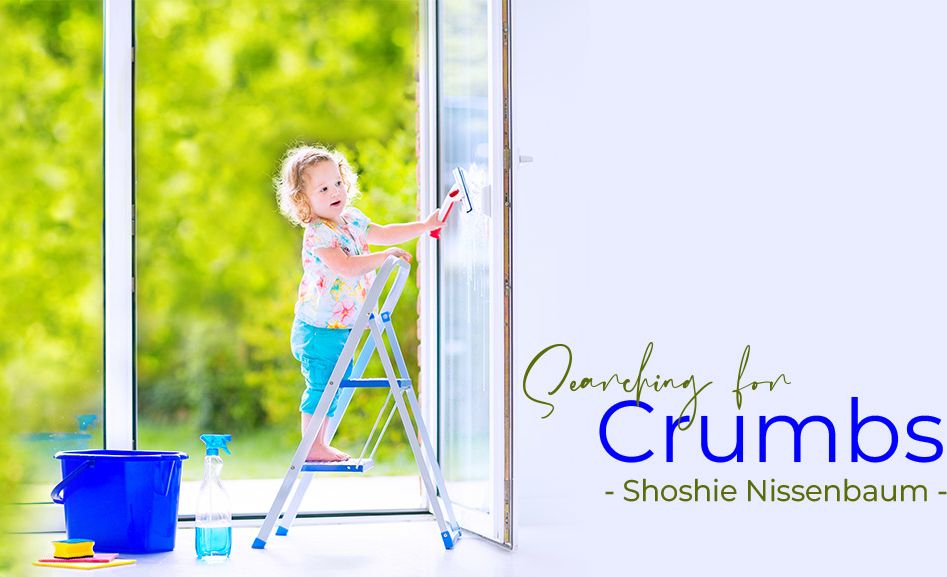

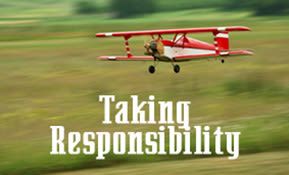
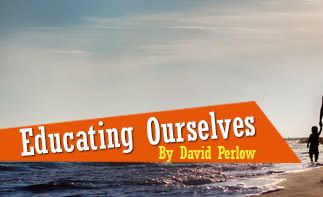
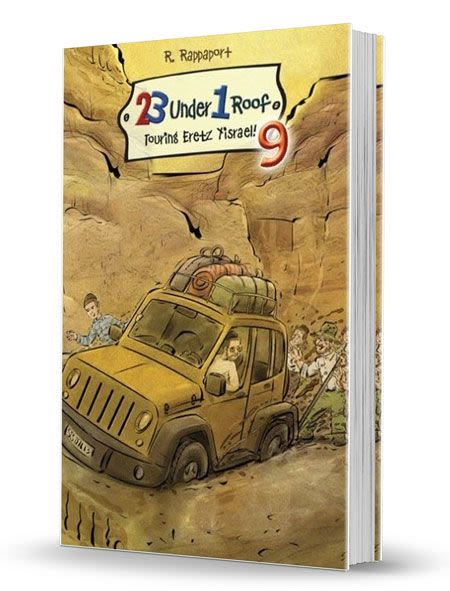
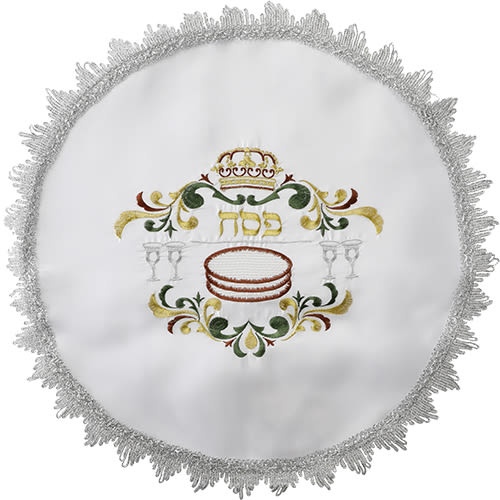
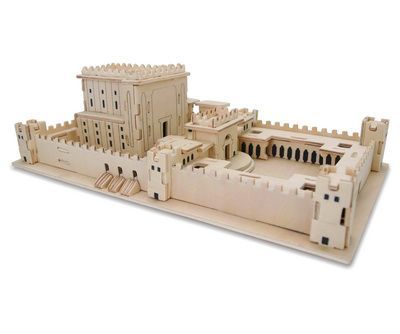
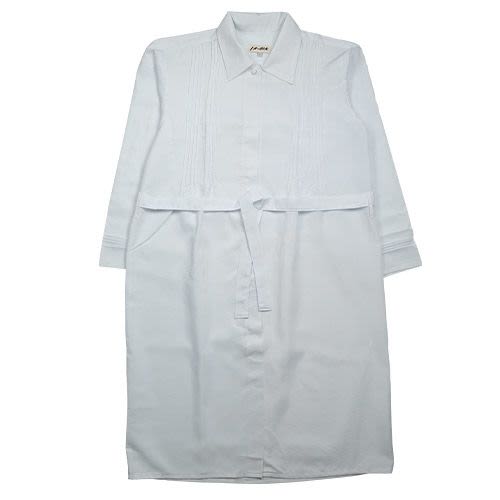
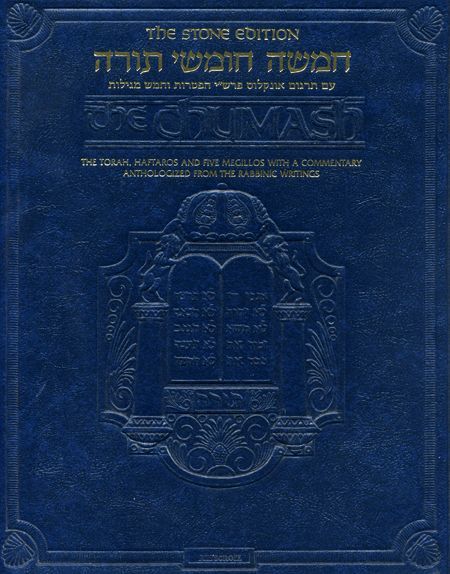
Tell us what you think!
Thank you for your comment!
It will be published after approval by the Editor.